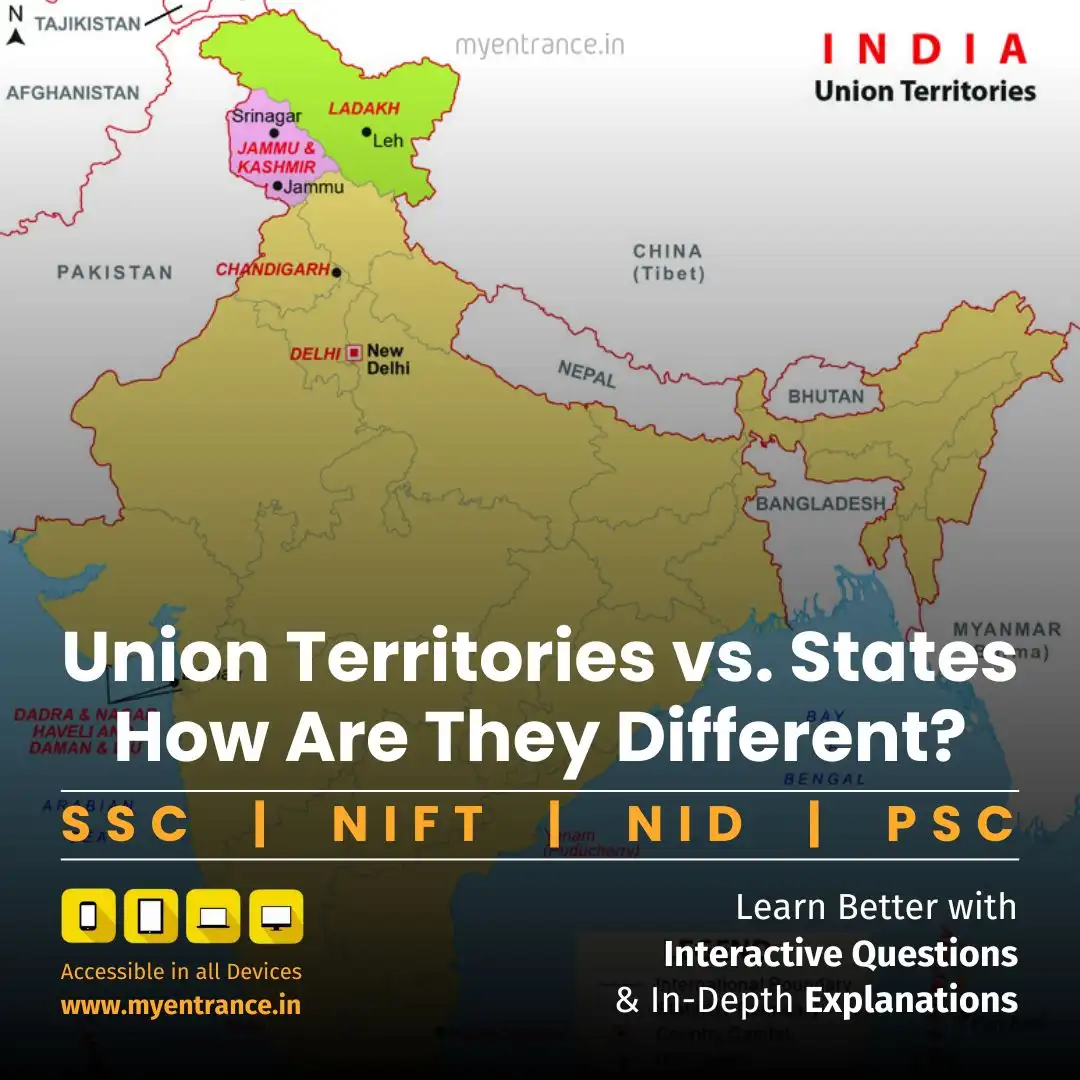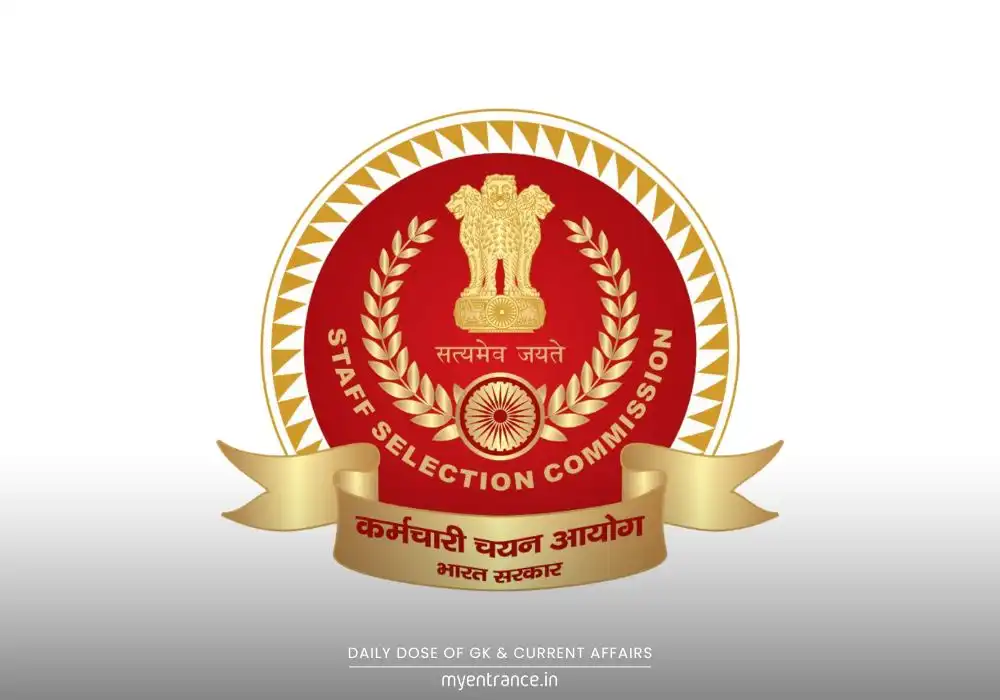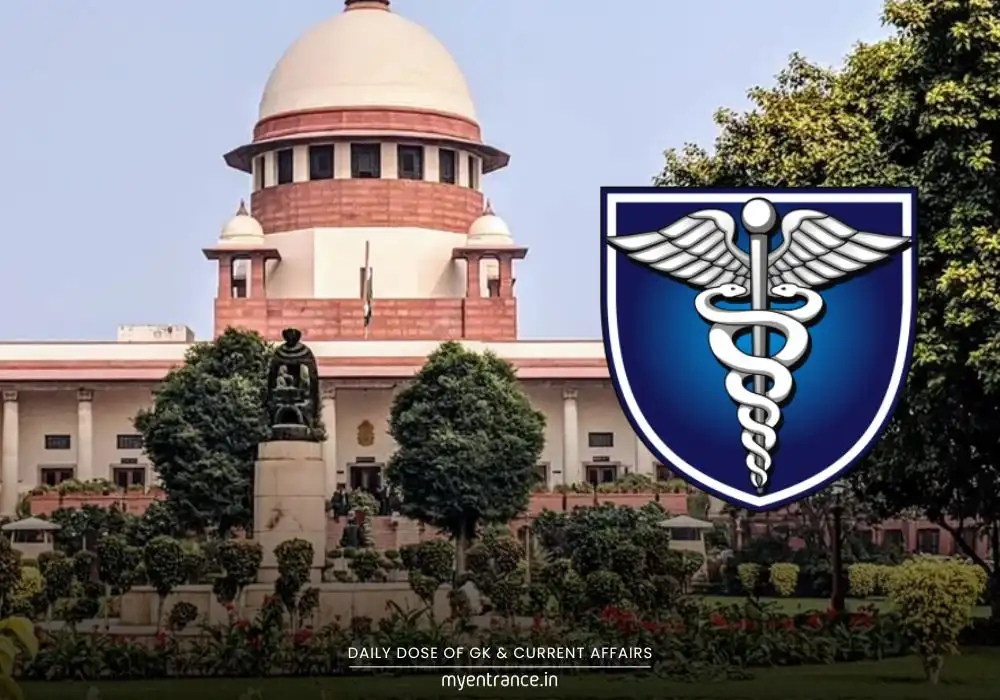Select Language
What Are Union Territories? Differences from States & Special Provisions
Union Territories (UTs) in India are regions directly governed by the Central Government, unlike states that have their own elected governments. They are formed for strategic, administrative, or geographical reasons and have unique governance structures.
Special Features of Union Territories in India
Union Territories are distinct from states in terms of governance, administration, and political autonomy. Here’s a detailed breakdown of their key characteristics:
1. Direct Central Government Control
UTs are administered by the Central Government through an Administrator or Lieutenant Governor (LG) appointed by the President of India.
Unlike states, which have their own elected governments, most UTs do not have full autonomy.
2. Limited Self-Governance
Only Delhi and Puducherry have their own elected legislative assemblies and governments.
Even in these cases, the Central Government retains significant authority, especially in law and order, land, and police matters.
3. Reasons for Formation of Union Territories
Union Territories are created for specific purposes, including:
Strategic Importance (e.g., Jammu & Kashmir, Ladakh) – Due to security concerns.
Geographical Isolation (e.g., Andaman & Nicobar Islands, Lakshadweep) – Remote locations needing centralized administration.
Administrative Efficiency (e.g., Chandigarh) – Serving as a shared capital for multiple states.
Historical Reasons (e.g., Puducherry) – Former French colonies integrated into India.
4. Role of the Lieutenant Governor (LG) or Administrator
Acts as the Central Government’s representative in the UT.
Oversees administration, law enforcement, and financial matters.
In UTs with legislatures (Delhi & Puducherry), the LG works alongside the elected government but holds veto power in critical areas.
5. Financial Dependency on the Centre
Most UTs receive funding directly from the Central Government.
Budgets and major financial decisions require central approval.
6. Judicial Administration
Most UTs fall under the jurisdiction of neighboring states’ High Courts.
Delhi is an exception, having its own High Court.
7. Parliamentary Supremacy Over UTs
The Indian Parliament has ultimate authority over all UTs.
It can pass laws, modify boundaries, or even convert a UT into a state (as seen with Goa, Himachal Pradesh, and Manipur in the past).
Sample Questions & Answers for Competitive Exams
Q1: Which Union Territory has its own High Court?
A: Delhi is the only UT with its own High Court.
Q2: Why are Andaman & Nicobar Islands a Union Territory?
A: Due to their geographical isolation and strategic importance, they are governed directly by the Centre.
Q3: Name two UTs with their own elected legislatures.
A: Delhi and Puducherry have elected assemblies.
Q4: Who appoints the Lieutenant Governor of a Union Territory?
A: The President of India appoints the LG.
Q5: Can Parliament convert a Union Territory into a state?
A: Yes, Parliament has the power to upgrade a UT into a state, as seen with Goa and Himachal Pradesh.
Most Predicted Questions
Comprehensive study materials, Expert-guided tips & tricks, Mock tests and instant results.
Start your SSC, NIFT, NID, FDDI, PSC journey today with MyEntrance, your ultimate online coaching platform.








